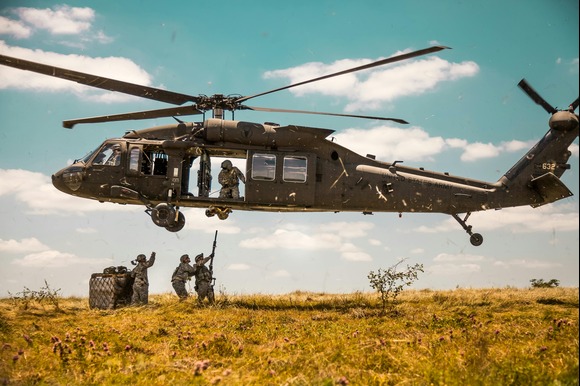Taiwan has for the first time designated 2027 as a potential year for a Chinese invasion during its annual military exercises, amid rising concerns on the self-governing island regarding escalating tensions with Beijing.
The Taiwanese Defense Ministry disclosed this timeline in a report released on Tuesday, aimed at informing lawmakers about forthcoming war games that will simulate a Chinese military attack. Additionally, the duration of these exercises will be extended to ten days this summer, highlighting a heightened focus on military readiness in the democracy that China claims as its own.
Historically, no prior plans for Taiwan’s largest annual live-fire drills in the last decade have indicated a specific year for a possible Chinese invasion, based on public documents reviewed by Bloomberg. Nevertheless, Defense Minister Wellington Koo downplayed the significance of the specified date.
“The Han Kuang Exercise typically projects a timeline of one to two years ahead, as the acquisition of new weapons and training necessitates repeated drills for validation,” he stated to reporters on Wednesday while preparing to speak to lawmakers. It remains uncertain how the 2027 designation will influence the drill program or if it serves primarily as a political message.
Emphasizing this year’s exercises around the year 2027 may be a strategy to navigate the deadlock in Taiwan’s divided parliament, where opposition parties are contesting certain military budget proposals, according to Jack Chen, director of Formosa Defense Vision, an advocacy organization. “This could prompt opposition parties and the public to perceive an urgent need for increased military funding,” he noted.
President Xi Jinping has tasked the People’s Liberation Army with the objective of transforming into a “modern military” by 2027 and achieving world-class status by 2047. US officials have asserted, as recently as last year, that China is preparing for a potential invasion of Taiwan by 2027, citing evidence such as Beijing’s expansion of its fleet of fighter jets, warships, and the doubling of its stockpile of ballistic and cruise missiles since 2020.
Taiwanese officials have previously rejected this US assessment, with Koo stating in 2023 that China would not be prepared to execute amphibious landing operations. Additionally, the corruption purges affecting the upper ranks of the PLA have raised concerns regarding the combat readiness of Chinese forces. The Pentagon noted in its annual report to Congress in December that ongoing corruption investigations could impede Xi’s modernization ambitions and undermine Beijing’s confidence in its senior PLA officials.
Since the inauguration of Taiwanese President Lai Ching-te last May, Beijing has intensified its pressure on the self-governing democracy. It has conducted two significant military exercises in the vicinity of Taiwan and has frequently dispatched warplanes across a de facto boundary line.
US President Donald Trump has urged Taiwan to increase its defense expenditures and has refrained from clarifying whether he would defend the island against a Chinese invasion, seemingly reverting to Washington’s traditional policy of strategic ambiguity.
Recently, Beijing conducted military drills around Taiwan, shortly after Lai delivered a speech in which he became the first president of the island to officially label China as a “hostile foreign force.”
China has also intensified its rhetoric. Wang Huning, the fourth-ranking leader in Beijing responsible for Taiwan affairs, has called on the nation to “shape the inevitable reunification of the motherland,” while the Communist Party’s official newspaper, People’s Daily, referred to Lai as a “cornered dog” over the weekend.






